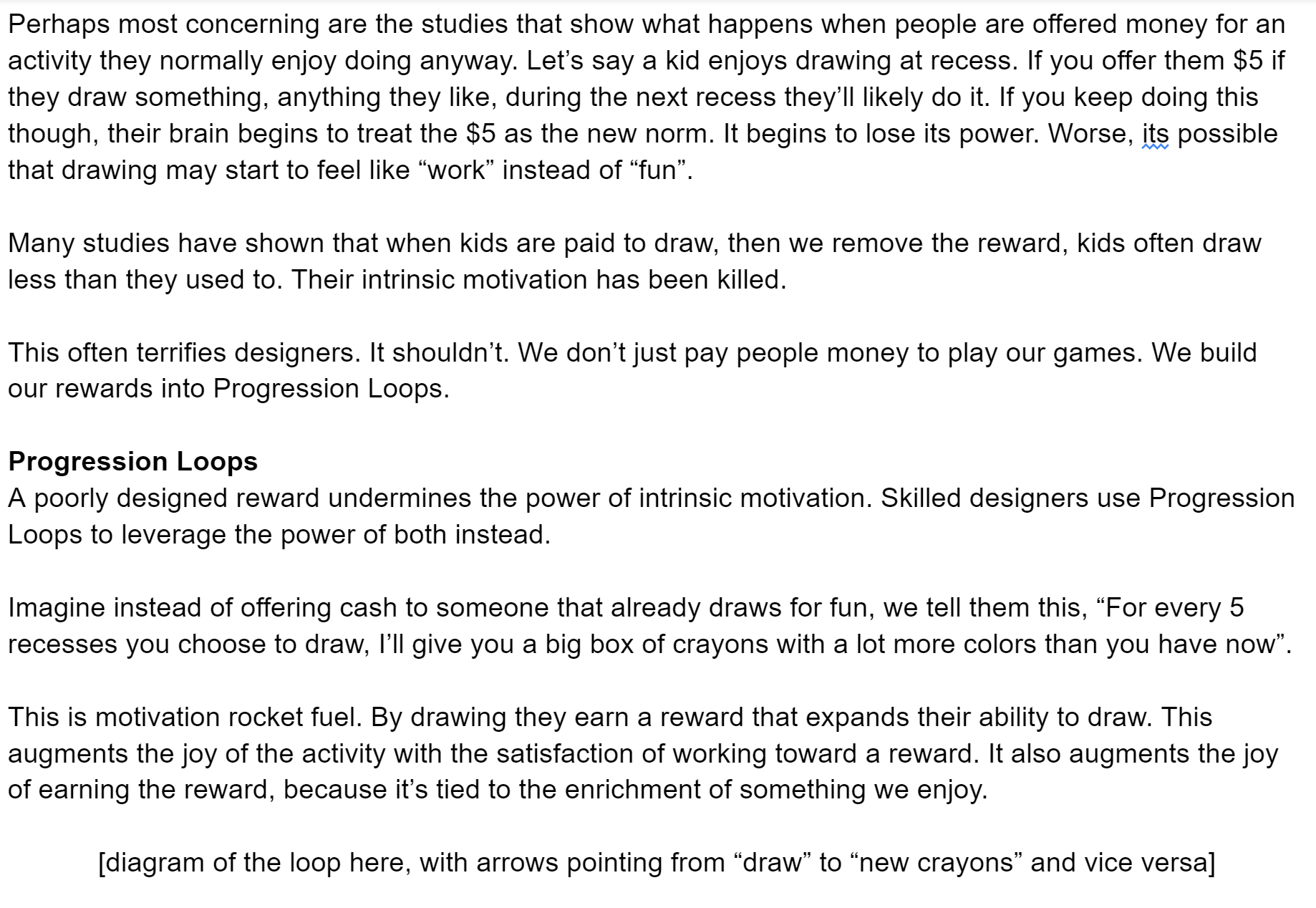The study of intrinsic motivation (done for its own sake) and extrinsic motivation (done for rewards) is so fascinating. Interestingly, when something is genuinely fun without rewards, attaching even a very small IN-GAME reward to it is enough to shift it from fun to annoying!
A lot of research on this comes from external to gaming- from psychology and economics. Studies where participants were asked to “draw pictures” vs “draw pictures and get $1 for each done”- and the participants in the latter group produced FEWER pictures.
Or how, above the pay point required to live comfortably and safely, further pay tends not to motivate people to higher performance- instead, it’s intrinsic aspects of their job, and the way it supports their autonomy, mastery, and sense of purpose
Counterpoint: Dan Felder argues that the reward should make you better as your skills improve. Dan writs:
This is a common misconception. I'm guessing it comes from the book Drive, which popularized a narrow application of the cognitive science research that doesn't apply to well structured game reward systems.
